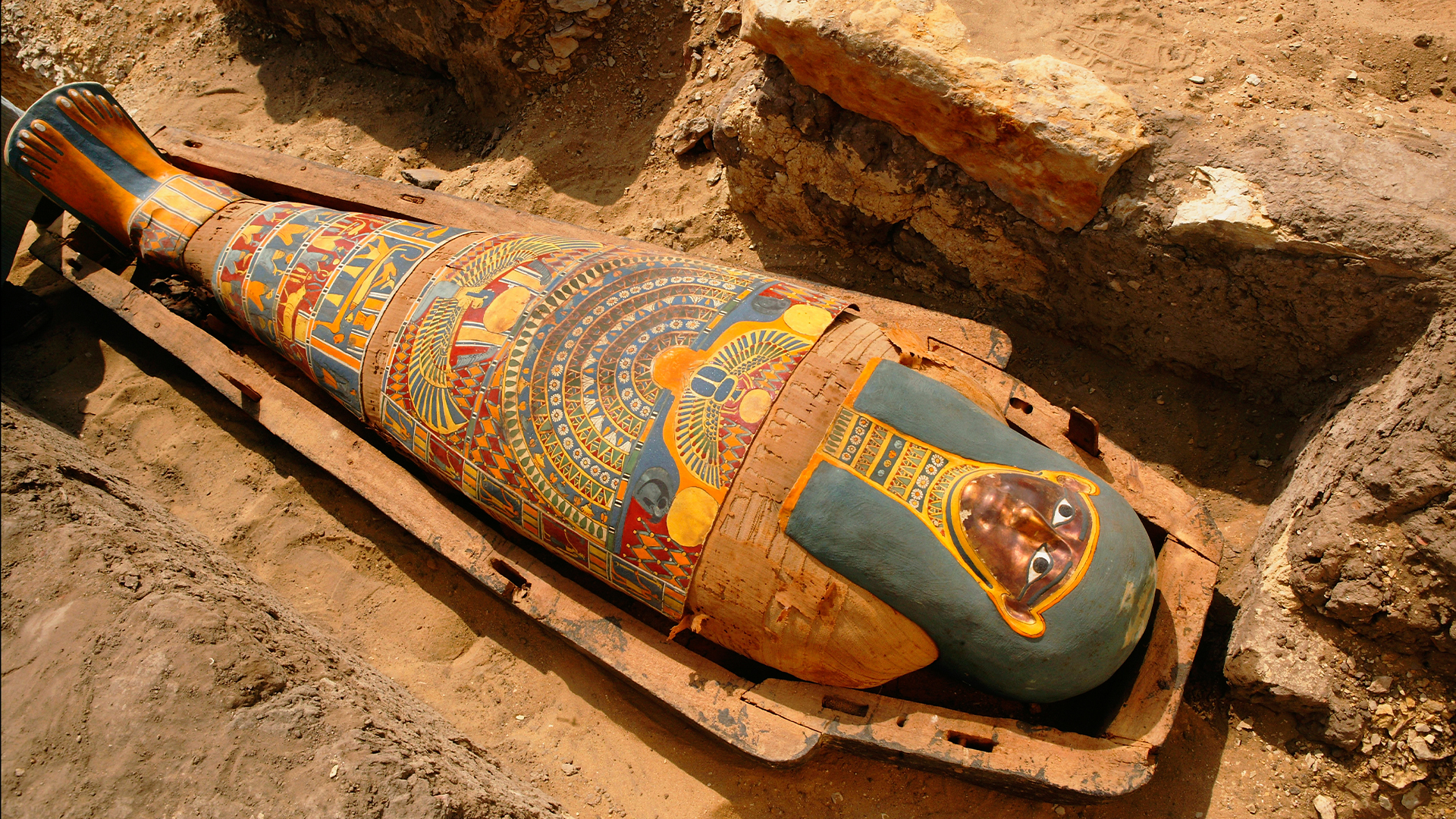When did the ancient Egyptians first mummify their dead?
Before the ancient Egyptians purposefully mummified their dead, the desert did it for them naturally.

Ancient Egyptians are perhaps best known for the way they treated the dead — from constructing colossal pyramids to filling subterranean tombs with lavish treasures and artifacts. The Egyptians also famously mummified many of the recently deceased to preserve their bodies.
But when did people in ancient Egypt start mummifying their dead?
"The origins of Egyptian mummification, for which there is clear scientific evidence, is [circa] 4,300 B.C.," Stephen Buckley, a researcher at the University of York in the U.K. who co-wrote two papers on the topic, told Live Science in an email. "We may find it goes back earlier still," Buckley said.
This evidence includes 6,300 year-old mummy wrappings that were found at an ancient Egyptian cemetery at the site of Mostagedda, about 200 miles (320 kilometers) south of Cairo. The burials were excavated in the early 20th century, and the wrappings were brought to the U.K. and are now in the Bolton Museum as Buckley and colleagues noted in the PLOS One study in 2014.
In the study, the scientists tested the wrappings and found that they contain resins typically used in mummification. The tests indicate that these resins were made from a variety of ingredients such as plant oil, animal fats, wax and plant gum. Similar resins were also used in later time periods by the ancient Egyptians for mummification, the scientists noted.
To put the 4,300 B.C. date into context, this is about a millennium before the Egyptians developed hieroglyphs and about 1,500 years before they started building pyramids. It is also about a millennium before Egypt became unified under a single pharaoh.
Natural mummification
While the oldest evidence for using artificial means to mummify bodies dates back around 4,300 B.C., Egyptians underwent natural mummification in even earlier times.
Sign up for the Live Science daily newsletter now
Get the world’s most fascinating discoveries delivered straight to your inbox.
Natural mummification "is an accidental process caused by favourable burial conditions," such as being buried in hot, dry sand, Buckley said. "The Egyptians didn't start to naturally mummify their dead at any point in time in terms of a conscious act," Buckley said.
Salima Ikram, an Egyptology professor at the American University in Cairo, told Live Science in an email that the earliest examples of naturally mummified mummies date from 5000 B.C. if not earlier.
Even after artificial mummification was developed, many Egyptians were still naturally mummified because they were unable to afford artificial mummification and so were buried in the desert. The "majority of ancient Egyptians were simply put in a hole in the ground, with no preparation" and could accidently become naturally mummified, Buckley said.
Ikram that "we don't know what was in the minds of the ancient Egyptians. But, whomever was put into a sandy grave, far from water, and not enclosed with a reed mat/coffin or in a skin, would have been naturally mummified."
As Christianity spread in Egypt between the second and fifth centuries A.D., the use of artificial mummification declined, according to the Royal Ontario Museum. While ancient Egyptian religion emphasized the importance of preserving the body for the afterlife, Christianity did not, the museum noted.

Owen Jarus is a regular contributor to Live Science who writes about archaeology and humans' past. He has also written for The Independent (UK), The Canadian Press (CP) and The Associated Press (AP), among others. Owen has a bachelor of arts degree from the University of Toronto and a journalism degree from Ryerson University.









